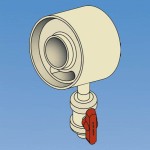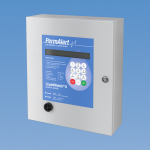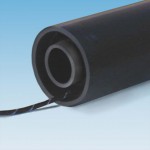Leak Detection for Double Containment Piping SystemsThe Environmental Protection Agency (EPA) has directed underground transport of hazardous materials be protected from release into the environment in its Standard 40 CFR, Part 280 & 281. Our Duo-Pro®, Poly-Flo®, Pro-Lock®, Fluid-Lok® and Chem Prolok® systems have been specifically engineered to exceed the piping system requirements of the EPA. However, an important additional aspect of the EPA requirement is the specification for leak detection systems in all buried systems. Pressurized systems must have automated leak detection, which are wired to shut-off valves in case a leak is detected, and drainage systems shall have at least a manual leak-detection system in place. Leak detection employment should also be considered in applications beyond those required by the EPA. In short, all double contained piping systems should have some form of leak detection. The issue then becomes how to properly select a means of leak detection. A basic leak detection decision making-matrix should include:
Manual Leak Detection Applications:Manual leak detection for drainage applications is the simplest of the three available methods. It is accomplished by accessing the annular space generally at low points in a system with a valve, plug, or pipe riser to grade. The EPA mandates a leak detection process that involves the periodic manual inspection of the ports at least every 30 days. Electronic Low-Point Leak Detection Applications:Low-point leak detection is similar to manual leak detection but utilizes electronic sensors in the place of manual valves or plugs. A wide variety of low-point sensors are available with varying functionality. Selection of sensor type is often dependent upon transported media. The two most common sensors are conductivity probes and float switch adapters. Continuous Cable Leak Detection Applications:Continuous leak detection sensing cable offers the most accurate method of leak detection. Sensor cable systems are capable of locating multiple leaks without loss of accuracy and sensitivity. |

- |

- |

- |

- |
- Sitio español
- |



